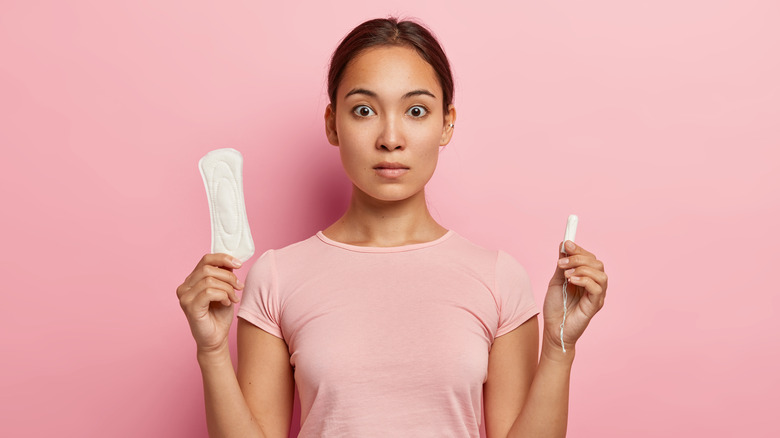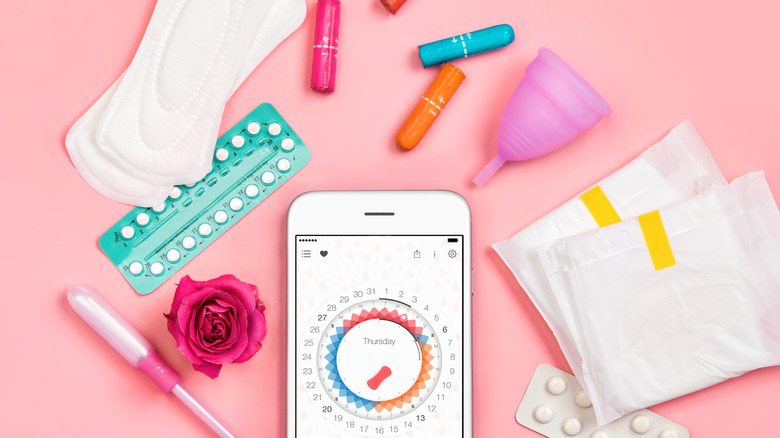Can Dieting Actually Lead To A Loss Of Your Period?
Extreme changes in diet, exercise, and shifts in weight loss can lead to changes in a woman's menstrual cycle — and while getting your period may not be your favorite part of the month, having a period is a sign of good health, while losing it may be an indication that something is wrong (via The Office on Women's Health).
Period loss is often brought on by nutritional deficiency, extreme weight loss or stress, or too much exercise, OBGYN Christine Greves, M.D., told Health. This can be traced to our evolutionary roots: "If you're stressed or not getting enough nutrients — if you think back to olden times, if you're at war, et cetera — that's not a time when resources are abundant. So it's probably not the best time to have a baby," Dr. Greves explained to Health.
While a diet itself isn't typically to blame for the loss of a period, extreme dieting (and disordered eating) that leads to weight loss can also lead to period loss, and with it, some other unhealthy side effects. Loss of bone density and increased risk of stress fractures may come alongside amenorrhea, or lack of a period. And if your period is gone for more than three months, other health risks increase (via SF Gate).
How does someone get their period back?
Weight loss that comes from caloric restriction can be particularly tough on a woman's body. "Weight loss due to undernutrition is characterized by low insulin levels in the body, and since insulin regulates the hormones that lead to menstruation, low insulin levels equals no period," writes Abbey Sharp, R.D., on Abbey's Kitchen. This doesn't mean that a woman has an eating disorder, she simply might be under-consuming without realizing it, or eating according to a weight loss plan that's too intense. Working with a dietitian to get back on track with a healthy eating plan that is optimized for maintaining healthy balance may be helpful.
Ironically, sudden weight gain can also cause you to skip a period, because the increase in adipose (fatty) tissue can lead to a hormonal imbalance. Anything that impacts your body's ability to ovulate will change your menstrual cycle — the body wants to be at "normal" status at all times, so maintaining a steady weight or slowly losing weight (around two pounds per week is the accepted norm) will help you to keep your period regular (via Very Well Health).


